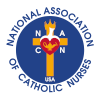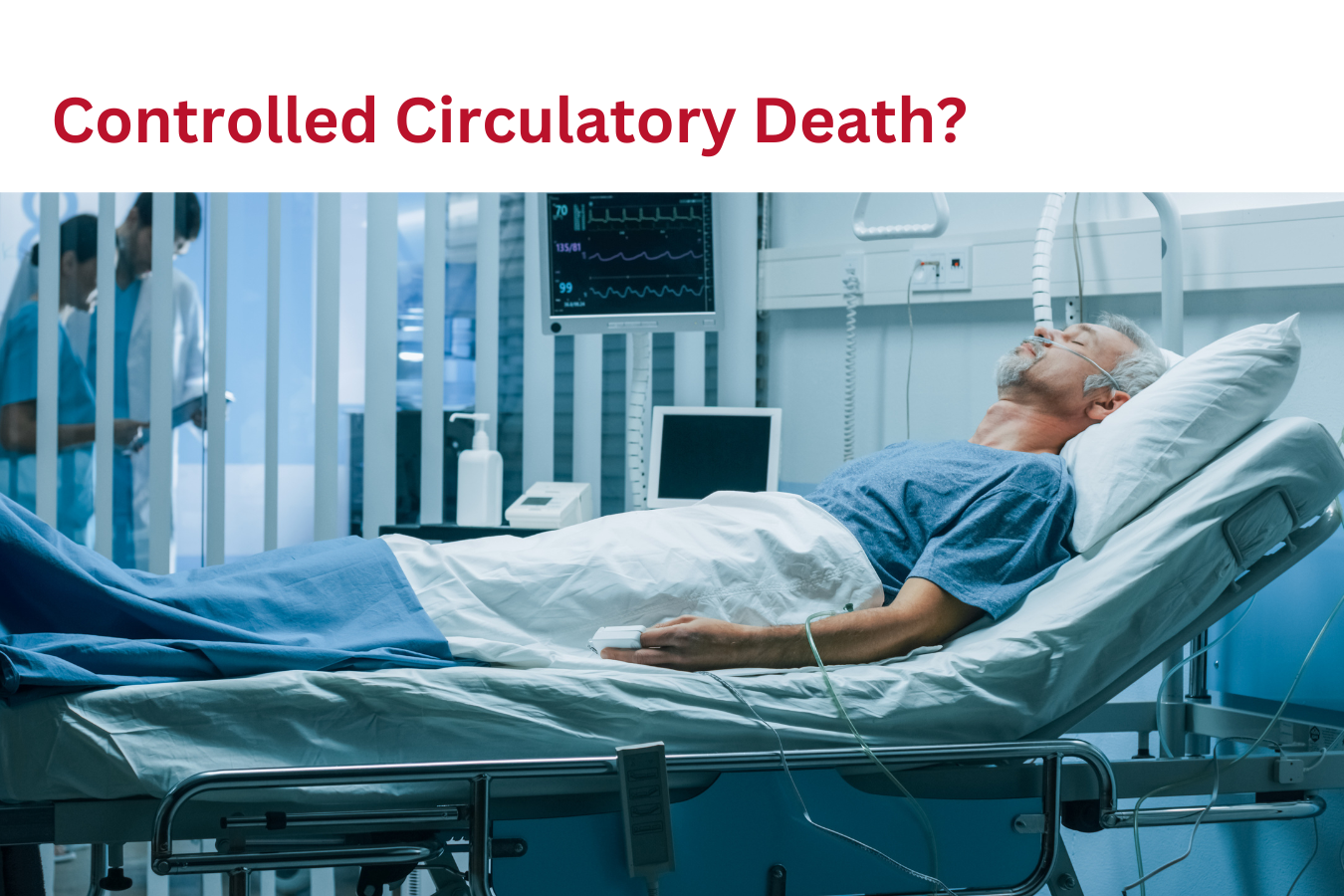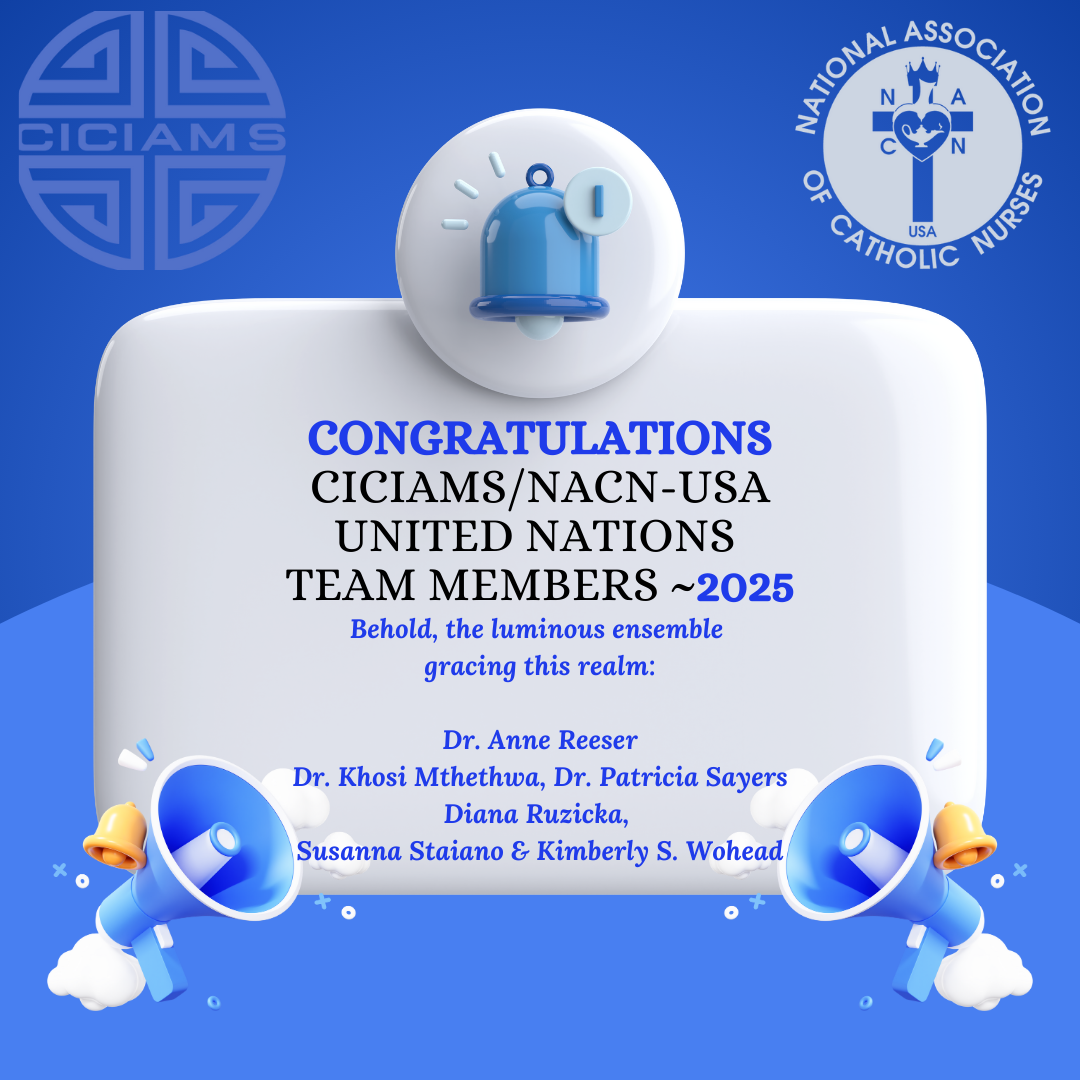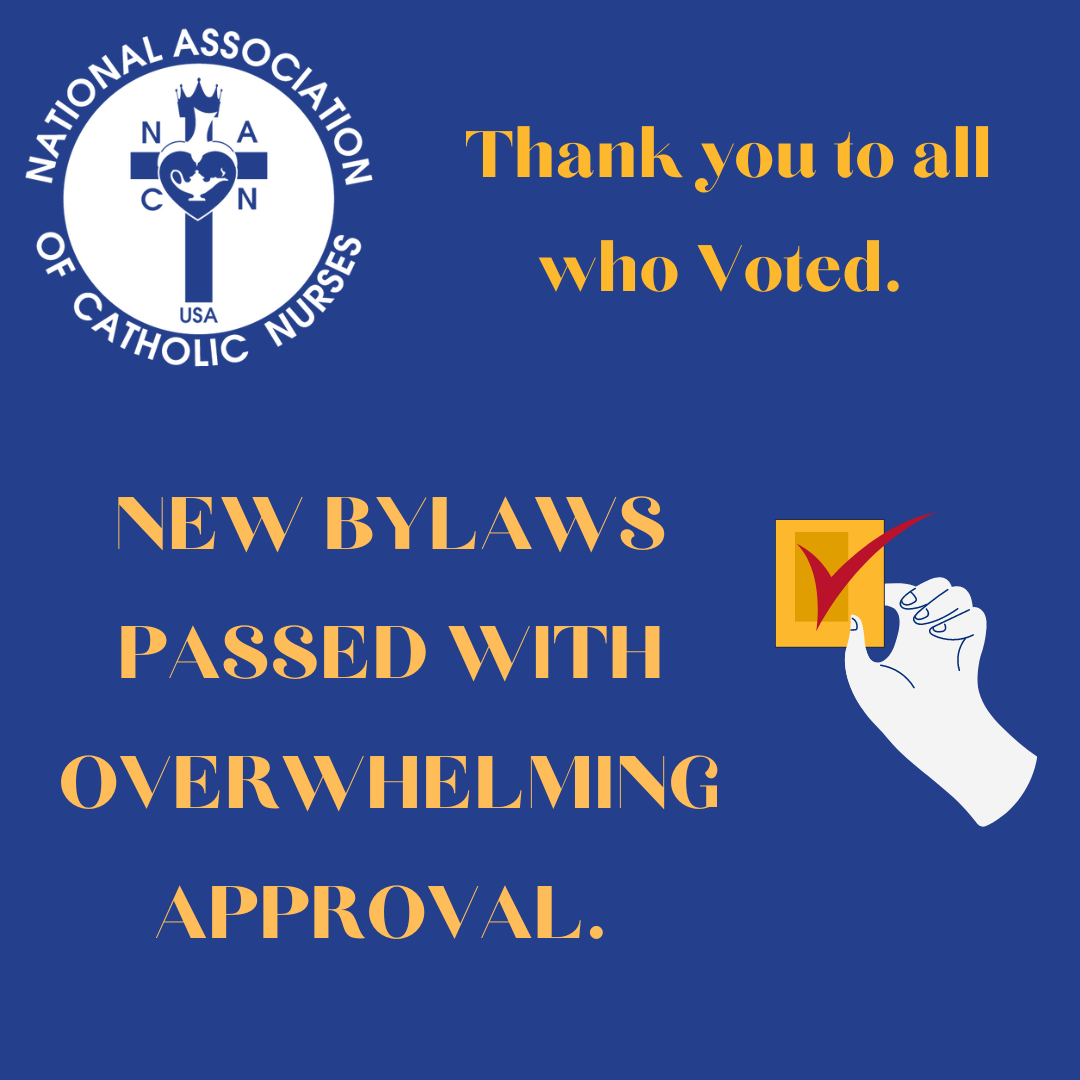A letter to the Members of the Uniform Law Committee on the proposed revisions to the UDDA
Date: July 11, 2023
The National Association of Catholic Nurses, USA (NACN-USA) is a professional Catholic Nursing organization whose members advocate to protect the dignity and sanctity of all human life from conception to natural death. Nurse members of NACN-USA strongly oppose the proposed revisions to the Uniform Determination of Death Act (UDDA) because:
- Death would be determined based on permanent verses irreversible circulatory or neurological criteria.
- Healthcare systems would have the authority to dictate reasonable time for family visitation prior to the removal of life support.
- A person’s right to an informed consent prior to testing for brain dead could be ignored based on a health-care facility’s reasonable effort to contact family/ surrogate decision maker.
- It would permit states to choose to include or exclude an opt out option for patients.
1. Changing criteria from irreversible to permanent
Permitting death to be determined based on the presence of permanent coma or partial brain dead neurological criteria can cause countless human beings to be determined dead when they are alive! Healthcare literature and social media report cases of patients being diagnosed as brain dead and in permanent coma who regain consciousness. Instances of physiologic and cognitive recovery have also been documented.
- Zack Dunlap, (2007) a young man from Texas, was declared brain dead 36 hours post head trauma via a brain scan. While in a coma, a family member prayed over him. Following prayer, Zack fully recovered. He returned home 48 days after he was declared brain dead. Importantly, Zack reported that he heard the doctors declare he was dead while he was in a comatose state. 1
- Colleen Burns (2009) was declared brain dead post suicidal attempt. Colleen opened her eyes minutes prior to an attempt to harvest her organs.2
- Senator Michael Crotts (1990) of Georgia suffered a massive heart attack during his campaign for office.3 After being declared dead for 34 minutes, life-support services were continued as his driver’s license indicated he was an organ donor. When Mrs. Crotts arrived at the hospital, she was informed that her husband was dead but on life support to procure his organs. She then prayed over her husband’s body. Immediately her husband’s heart monitor began alarming. Doctors reported, “He may be technically alive but he is brain dead.” 4 The following day, after her persistence, Mrs. Crotts reported, ” they brought in a machine to test his brain waves they
couldn’t wait to tell me he was brain dead …and the test said severely brain damage.”5 Senator Crotts reported that he was ” in a coma for two weeks after this woman (Mrs. Crotts) calling me back and continued to pray for me right, walked out of that hospital without any… medications” 6 Senator Crotts went on to serve six terms as a Senator for the state of Georgia. 7 He recently died July 9, 2022.8 - Trenton McKinley (2018), a 13-year-old boy, was diagnosed severe irreversible brain damage. Trenton woke up a day before life support was scheduled to be removed following a consent for organ donation obtained by his parents. Can you imagine how McKinley’s parents must have felt to know that they almost caused the death of their child? 9
NACN-USA Nurse members strongly oppose the Uniform Law Committee’s (ULC) proposal to permit death to be determine by permanent cessation of circulatory and respiratory function permitting opportunities for procurement of life saving organs via “controlled circulatory death. The American Society of Anesthesiologist (October 26, 2022), describes the process of donation by controlled circulatory death as follows:
…waiting for longer than two minutes but for no more than five minutes of absent circulatory function before pronouncing the patient dead …. Normothermic regional perfusion (NRP) … an emerging technique in deceased donor organ procurement … allows for the restitution of perfusion to extracerebral tissues and organs…. Following stemotomy, the cerebral tributaries of the aortic arch are first clamped to prevent any return of cerebral circulation. Subsequent to this critical step, systemic perfusion is reinstituted either by restarting the donor heart in situ, or by circulatory mechanical support – or a combination of the two …. This effectively converts the DCD donor to a DDNC donor, with an active systemic circulation, but no cerebral blood flow. 10
In accordance with the teachings of the Magisterium of the Catholic Church, NACN-USA approves of organ donation provided the patient (donor) is truly dead. The procurement of an organ(s) is not to be the cause of the organ donor’s death (Dead Donor Rule).11 Causing harm/ brain death to one patient in order to save another is ignoring a person’s (the potential donor’s) right to life. NACN-USA Nurse members are committed to abiding by the Catechism of the Catholic Church (CCC) respecting all human life, “It is not morally admissible to directly … bring about the disabling, mutilation, or death of a human being, even in order to delay the death of other persons.”(para 2296)12
2. Healthcare systems would have the authority to dictate reasonable time for family visitation prior to the removal of life support.
Section 4, Time to Gather, UDDA draft ( June 9, 2023)
Healthcare institutions, ” … after the individual is determined to be dead … but before discontinuation of circulatory and respiratory support, … shall allow a reasonable time for those designated by the individual’s surrogate to gather at the individual’s bedside.”13
Permitting States to allow healthcare systems to have authority to determine reasonable time for family members to gather prior to the removal of life support, is putting patients and families’ rights, in second place. The primary client is the patient not the State nor the donor recipient. Respecting the patient’s end-of-life individual, emotional, cultural, and religious beliefs is a standard of The Joint Commission.14
Patient support from family members /significant others /guardians, is essential for both the patient and the patient’s family. Creutzfeldt, et, al., (2021) emphasizes the importance of family at the bedside to assist in providing needed advocacy as well as emotional support.15
3. Excludes Informed Consent Prior to Testing for Brain Dead.
Section 5 of the UDDA draft ( June 9, 2023)
Notification would permit healthcare systems to, ” …make a reasonable effort to notify individual’s surrogate that the evaluation will begin …. Legislative Note: A state should include this section if it wishes to require this notification.”16
The definition of reasonable effort is omitted in the draft. Is making a few phone calls within one hour considered to be a reasonable effort? A person who is in a comatose state is unable to consent to treatment/test etc. Therefore, the comatose patient requires the immediate family member or designated healthcare proxy to be contacted for consent. Ignoring informed consent is both a legal and ethical violation against a person in a “comatose” state.
4. States can choose to include an option for patients to opt out?
It is essential that permission to opt out of the determination of death option is made available to safeguard the protection of patients who have a moral conscientious objection due to their religious or cultural beliefs. If the opt out option is not mandatory, NACN-USA is concerned healthcare systems will choose to omit the option, giving them the authority to override patients’ cultural and religious rights
regarding healthcare choices. Arienne Calingo (2022) identified various religious leaders, healthcare legal and medical representatives’ insights on how religion and cultural diversity can affect healthcare decisions.17 Although the Determination of Death Act draft permits the opportunity for a patient or their healthcare proxy to opt out it merely suggests that States should include the option if it wishes to allow
for this accommodation.18
In conclusion, ULC must continue to safeguard the life of the donor via the Dead Donor Rule, which is supported in the present UDDA. NACN-USA rejects ULC’s Determination of Death Act option which permits death to be determined based on permanent cessation of circulatory and respiratory function, or permanent: coma or loss of brain stem reflexes (pa1tial vs. whole brain dead). If a person is determined to be partially brain dead, they are still alive! Doctors and nurses are obligated to do no harm. Determination of death based on subjectivity would cause harm, allowing controlled cardiac death, causing brain death to procure life -saving organs for others. Permitting the death of one via controlled cardiac death followed by resuscitation effo1ts solely to procure lifesaving organs for another person, is
not permissible. Nurses are patient advocates. As advocates, NACN-USA urges the ULC uphold the current UDDA and ensure informed consent is obtained prior to testing for brain death. The right of informed consent must be assured for all humans regardless of state of consciousness. NACN-USA strongly urges ULC: 1) to avoid dictation of time allowance for family visitation prior to removal of life support and 2) to mandate an opt out option to protect the right of conscience.
Patricia A. Sayers DNP, RN
President, National Association of Catholic Nurses, USA
Maria V. Arvonio MA, BSN ,RN
President-elect, National Association of Catholic Nurses, USA
1 Hussain, A. (August 7, 2022) Is brain dead actual death? Absolutely not! Journal of the British Islamic Medical
Association. https://www.jbima.com/article/is-brain-death-actual-death-absolutely not/
2 O’Brien, J. & Mulder, J. (July 7, 2013). St. Joe’s “dead” patient awoke as docs prepared to remove organs. Syracuse.com
https: //www.syracuse.com/news/2013/07/st joes fined over dead patien.html
3 Crotts, M. ( https://www. mikecrotts.com/)
4 The Life Center Atlanta. Miracle Night w/ Senator Mike Crotts (The Life Center 6/25/22). (Video) Transcript 16:16-16:18.
https://www.youtube.com/watch?v=Md7 i 26W0g
5 The Life Center Atlanta. Miracle Night w/ Senator Mike Crotts (The Life Center 6/25/22). (Video) Transcript 16:55- 16:59.
https://www.youtube. com/watch?v=Md7 i 26W0g
6 The Life Center Atlanta. Miracle Night wl Senator Mike Crotts (The Life Center 6/25/22). (Video) Transcript 23:26-23:42.
https://www.youtube. com/watch?v=Md7 i 26W0g
7 The Life Center Atlanta. Miracle Night wl Senator Mike Crotts (The Life Center 6/25/22). (Video) Transcript 26:34.
https://www.youtube. com/watch?v=Md7 i 26W0g
8 Scott Ward Funeral Services. (2022). Michael Dean Crotts. March 19, 1947 July 9, 2022.
https://www.scotward.com/obituaries/Michael- Crotts/#!/TributeWall
9 Hetherington, J. (May 7, 2018). Alabama boy makes miracle recovery after parents agree to donate his organs. Newsweek.
https://www.newsweek.com/alabama-boy-makes-miracle-recovery-after-parents-agree-donate-his-organs-912425
10 American Society of Anesthesiologist. ( October 26, 2022). Statement on Controlled Organ Donation after Circulatory Death. https://www.asahg.org/standards-and-guidelines/statement-on-controlled-organ-donation-after-circulatory-death
11Schweikart, S. (December 2020). Reexamining the Flawed Legal Basis of the “Dead Donor Rule” as a Foundation for Organ Donation Policy. AMA Journal of Ethics. https://journalofethics.ama-assn.org/article/reexamining-flawed-legal-basis-dead-donor-rule-foundation-organ-donation-policy/2020-12
12 Catechism of the Catholic Church (2nd ed.). https://www.usccb.org/sites/default/files/flipbooks/catechism/554/
the creator of life and has the sole authority to determine when life begins and ends
13 Uniform Law Commission. (June 9, 2023). Uniform Determination Death Act (20_). ” Time to Gather” Section 4. p.3
14 The Joint Commission .(2023). The Joint Commission Resources. Care Standard: Spiritual Beliefs and Preferences – Evaluating
a Patient’s Spiritual Needs. Oakbrook Terrace, Illinois.
https://www.jointcomrnission.org/standards/standard-faqs/home-care/provision-of-care-treatment-and-services-pc/000001669/
15 Creutzfeldt CJ, Schutz REC, Zahuranec DB, Lutz BJ, Curtis J. & Engelberg RA. (May 2021). Family Presence For Patients with Severe Acute Brain Injury and the Influence of the COVID-19 Pandemic. J Palliative Med. 24(5):743-746. doi: 10.1089.
16 Uniform Law Commission. ( June 9, 2023). Uniform Determination Death Act (20_). “Notification”. Section 5. b, p.3.






